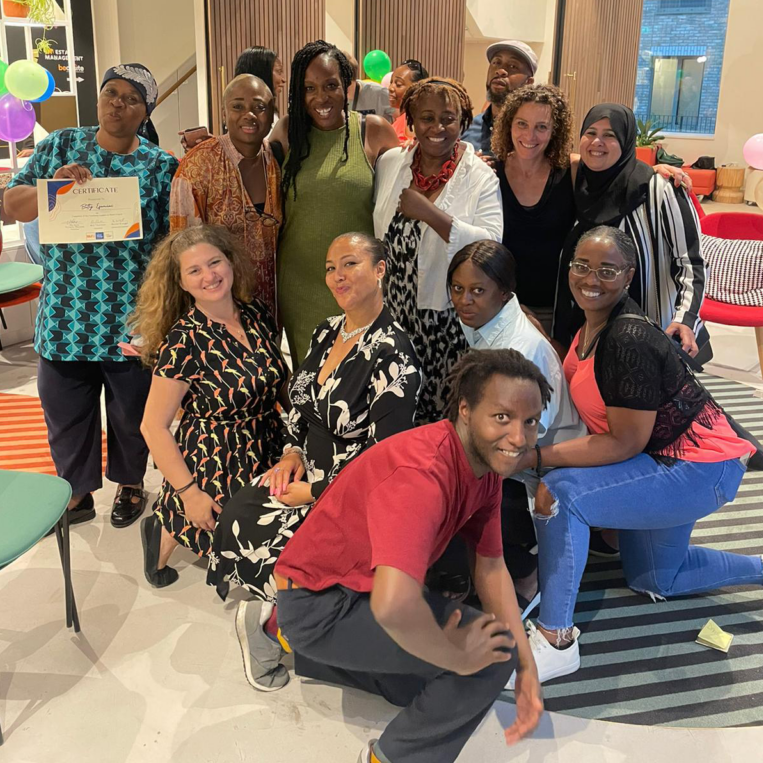Takeaways from a series of co-creation workshops
In March 2023, Collective Mind launched the results of a major participatory research study on donor funding to networks. As a follow-up to this research, we organized a series of co-creation workshops between April and June to share the research findings and elicit ideas for how to further the agenda of improving funding to networks.
The ideas shared by participants — who represented both networks and donors — fell across a spectrum of needs of networks, of donors, and relevant to both. Participants also made recommendations about the ways forward to improve funding to networks.
Some points made were very concrete. For example, funding needs to be structured in ways that match network operations and ways of working, via general or core operating support with flexible timelines and conditions and away from project-based funding that fragments networks’ efforts. Networks noted the challenge they face in finding donors and funding opportunities in the first place was identified given a lack of information and awareness of opportunities to meet, connect, and build relationships with prospective donors. Participants also suggested creating shared tools and practices to be used by networks and their funders, such as for application vetting, measuring impacts, and reporting, in order to simplify processes and minimize the burdens of raising and managing funds.
Beyond these pragmatic ideas, a few key takeaways stand out from participants’ synthesized contributions.

Key Takeaways
First, networks need to be able to articulate and communicate their results. This refers to both the substance of results that can be shared and the strategies for doing so. Both donors and networks themselves recognized — as was also highlighted in the research itself — that quantifying and measuring the impact that funders seek is a huge if not impossible task for most networks. Likewise, creating and applying the appropriate tools, whether metrics and indicators that can represent the work of a network or appropriate monitoring and evaluation frameworks that take into account the unique nature and ways of working of networks, remains a major challenge.
While the challenges of evaluation require more dedicated attention to reach feasible solutions, a practical approach to building the case for funding through communications strategies was widely noted as critical and possibly more doable. As one participant noted, “effective communication entails the ability to describe the complex, collaborative work of networks in ways that grab attention while staying true to the genesis of the results articulated”, for example, not claiming attribution for things that were outside the control of the network. This means using language and approaches to talk about the work of the network in ways that are compelling to encourage donors to fund, highlighting unique “selling points” for the network. For that matter, communications can serve as a mechanism to share results but also to create greater engagement in network activities.
Second, donors need greater understanding of networks. They must move beyond buzz words (such as “systems change”) to more deeply understand how networks operate, the kinds of results they can achieve, and the differences between networks and other organizations with the implications for management, structures, ways of working, impacts, and more. Greater understanding requires more knowledge as well as greater exposure to networks, which could help remedy the contradictions between what donors may expect and the reality of networks.
Third, both donors and networks need more information about each other. Mutual understanding serves as the basis for mutual trust and accountability. Donors need to know more about the networks they fund, in terms of their internal effectiveness and potential for external impact. They need tools and methods for unpacking and assessing the networks that they’re funding or considering for funding. It is just as important for networks to assess their internal health and effectiveness so that they can communicate that to (potential) donors. This includes being open and transparent about challenges and issues that arise. On the other side, donors need to likewise behave with openness and transparency with the networks they (may) fund, being clear about their expectations for ways of working, results, and more. Through open, honest exchange about needs, expectations, and realities, donors and networks can establish clear value propositions that both the network and the donor can invest in.
Taken together, these takeaways are the premise of a greater shift. Improving communications, information, and understanding serves as the basis for more effective, mutually beneficial relationships. The shift in knowledge and understanding can predicate a shift in power towards more equal and equitable relationships between networks and their funders. These relationships can move beyond transactional to grounded in shared values, reciprocal learning, and joint clarity about what success looks like. Such relationships require time and investment from both sides but ultimately improve the use and outcomes of funding.

Kerstin Tebbe has almost 20 years of experience supporting networks and multi-stakeholder collaboration. She founded Collective Mind in late 2019 after many years of independent study and research on networks. With Collective Mind, she has supported networks from local to global on a wide range of challenges including strategy development, network assessment and evaluation, design and organizational review, convening, fundraising, capacity building, and network strengthening. Kerstin has lived and worked in New York, Buenos Aires, Paris, Nairobi, Geneva, and Washington DC. When she’s not thinking about networks, she’s dancing.
originally published at Collective Mind
featured photo by Markus Winkler on Unsplash

Network Weaver is dedicated to offering free content to all – in support of equity, justice and transformation for all.
We appreciate your support!



